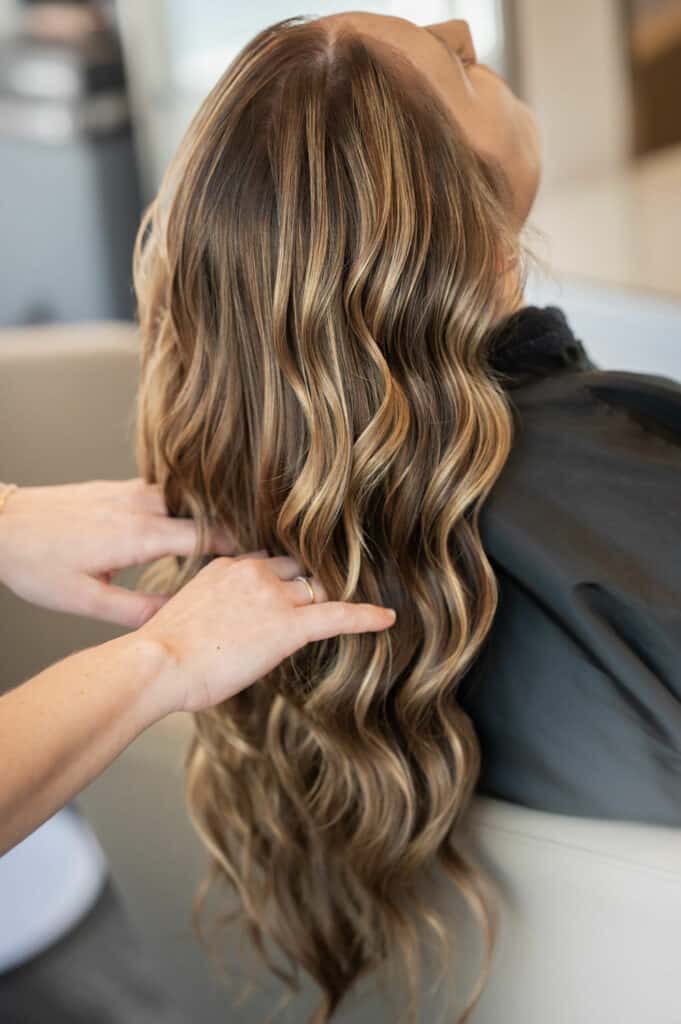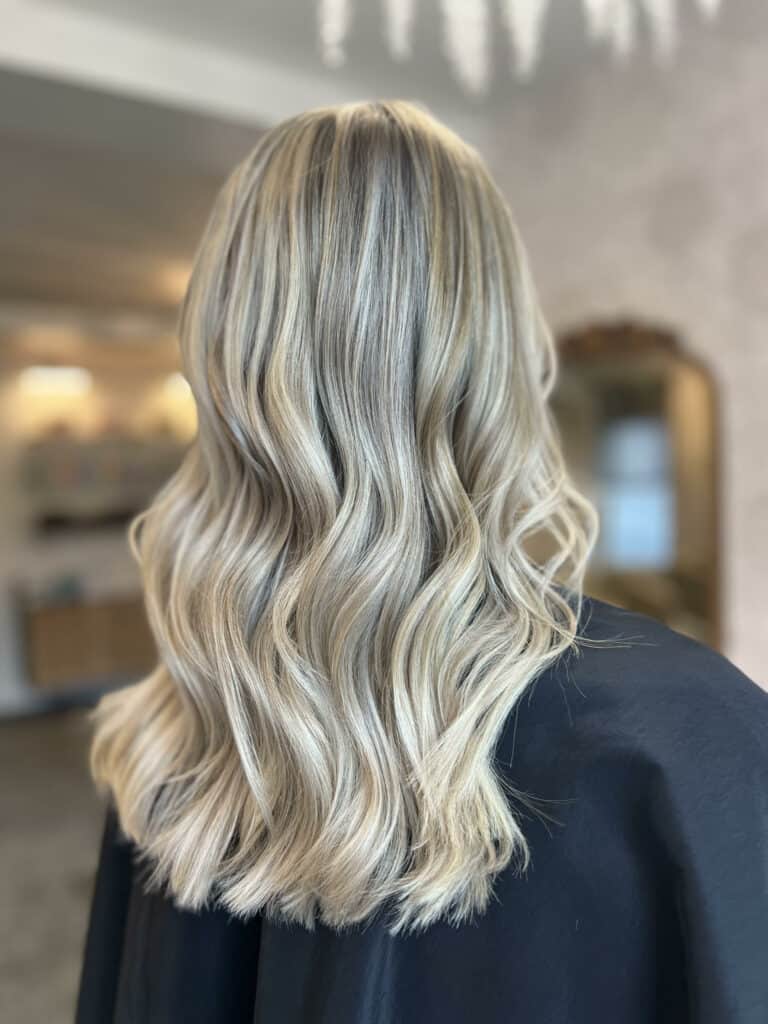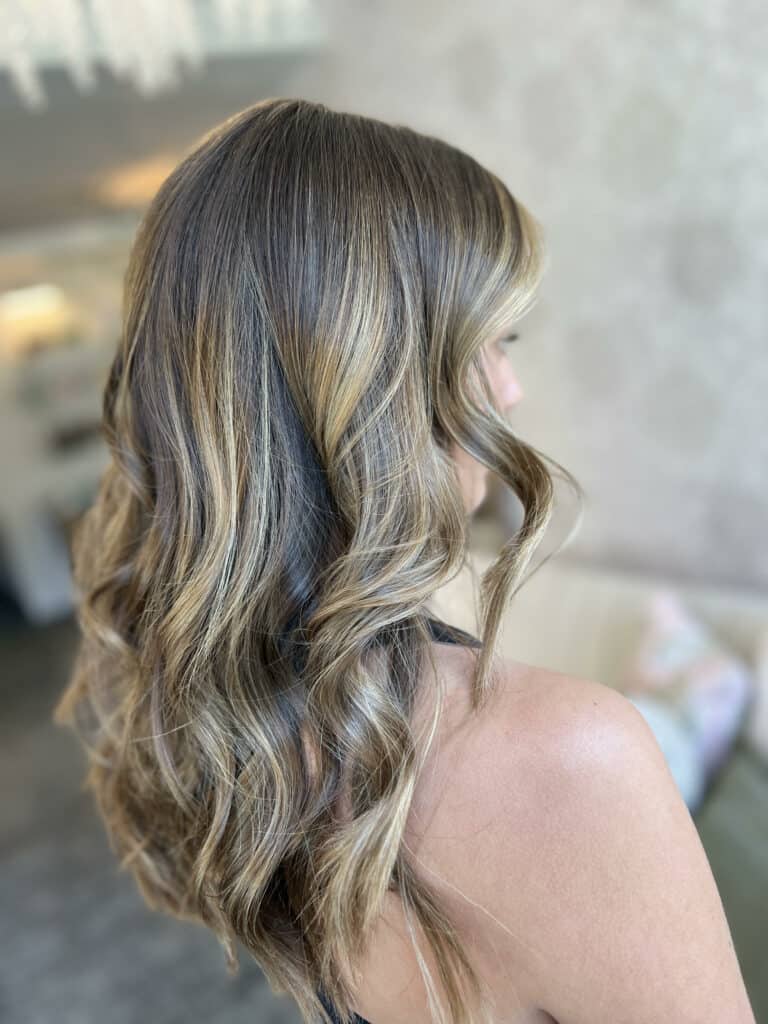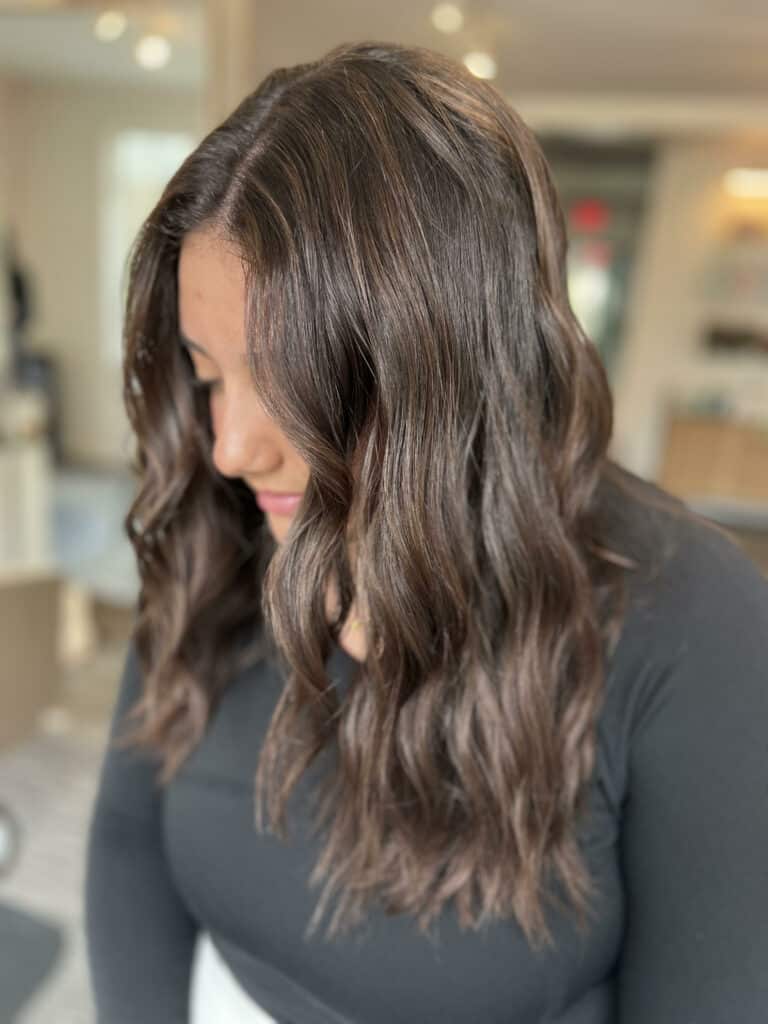
One of the most common complaints we hear in the salon is that the client has oily roots and they need to wash their hair daily. Washing your hair too often can strip it of its natural oils, making the ends dry and brittle. Sometimes an oily scalp is actually created by daily washing, which seems counterintuitive. Consider how often you need to wash your hair based on your hair type and lifestyle. People with oily hair may need to wash it every other day or every two days, while those with dry hair may only need to wash it once or twice a week. This will be a series, as there is a lot of information on the topic. We are going to start with common reasons we have an oily scalp.
Of course an oily scalp can be due to hormonal imbalances, genetics, or overactive oil glands. Not all reasons you have an oily scalp can be helped simply by changing routine. However, we find that 80% of people who are consistent with a preventative new routine have seen a significant decrease in oil production in around 3 weeks. We will get to a routine to help reduce oil production in the next blog post.
Reasons why you may have an oily scalp not linked to internal causes:
- Your products could be drying out your scalp. It is very common for products to contain ingredients that are known to pull moisture from the hair and scalp. Some of the top offenders are: Sulfates, Sodium Chloride (Salt, Sea Salt), Isopropyl Alcohol, Parabens, Phthalates (DEP, DBP, DEHP, or DMP), and Formaldehyde (Polyoxymethylene Urea, Imidazolidinyl Urea, or Quaternium-15). When your products dry out your scalp, it tells it to create more oil to compensate. This creates a vicious cycle.
- Your products could be creating a build up on your scalp. This could trap the oil your scalp produces, not allowing it to make its way through the ends. Look out for silicones.
- Washing with too hot water.
- Washing your hair everyday can create an oily scalp. When you wash away the natural oils, it prompts your scalp to make more. When it is washed off again, your scalp thinks that it needs to create even more because the amount the previous day was not enough. This makes a hard cycle to break.
- Not washing your hair properly. Stay tuned for a blog post on the proper ways to wash your hair.
A proper analysis of your hair products can determine if they are apart of the cause. Send a picture or bring your hair products in to your stylist to look at. If they have any of the troublesome ingredients, see if you can swap them in for a better alternative. In regards to build up, a weekly clarifying is necessary.
It definitely can be discouraging if you do not want to wash your hair daily but feel as if you have no choice. Put some questions in the comments and I can address them next week when I introduce the first weeks steps to washing your hair less.









